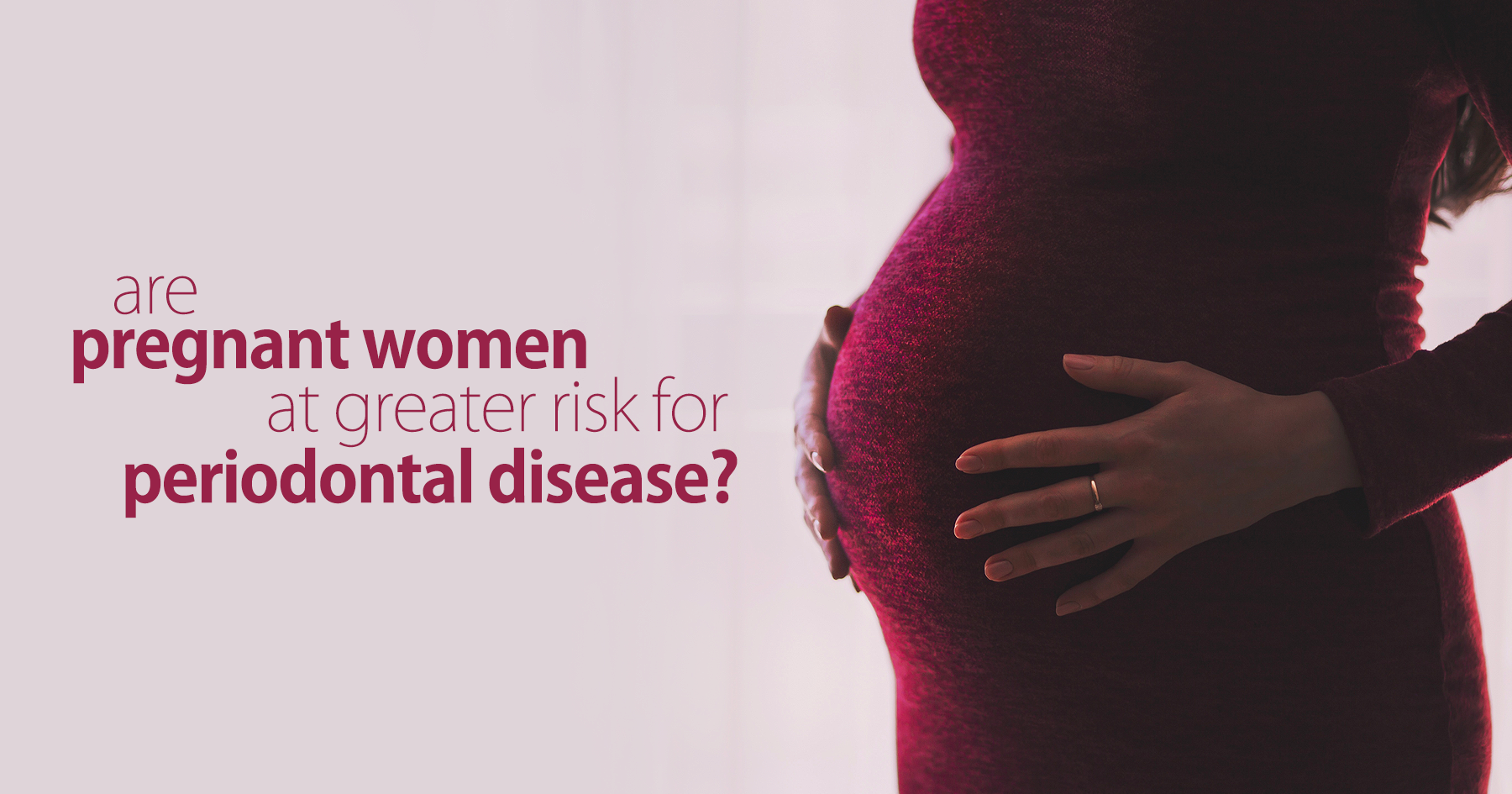
It is common for women to experience problems with their gums and teeth during pregnancy. Hormonal changes during pregnancy can cause teeth to become sensitive as well as gum swelling and bleeding. Because of the changes to oral health during pregnancy, it is very important for pregnant women to practice good oral health care and to visit their dentist regarding any oral health issues that may arise to prevent further damage.
If problems with your teeth and gums are left untreated, then periodontitis can occur. Periodontal disease causes the gum to pull away from the teeth and form pockets that later become infected. If left untreated, it can result in tooth loss. To help you identify potential pregnancy-related oral health issues, we’ve gathered a list of common symptoms and how you can prevent them.
Pregnancy gingivitis
The hormonal changes that occur during pregnancy allow for bacteria to grow more easily in the mouth and in the gums. With more bacteria comes an increased chance of periodontitis. Because this may cause your gums to bleed, recede, or become sensitive, the bacteria have easier access to eat away at your gums.
Gently brushing with a soft-bristled brush can also help. By brushing twice a day and flossing, you are eradicating the damaging plaque and bacteria in your mouth and on your teeth. A soft-bristled brush are less likely to cause your gums to bleed, which is common due to the additional amount of blood you have in your body.
Nausea and vomiting
Morning sickness is common for most pregnant women, but it can harm teeth. The stomach acids that come up when vomiting can damage your enamel, which, when broken down, makes it easier for acid and bacteria to attack teeth. This can cause sensitivity and decay.
To decrease the amount of plaque and acids on your teeth, try chewing sugarless gum that contains xylitol. Also, try using toothpaste and mouthwash that contains fluoride.
While these changes to your gum and teeth during pregnancy are painful, there are things you can do to alleviate the pain. Discuss additional options with your dentist to prevent any further damage to your oral health!

